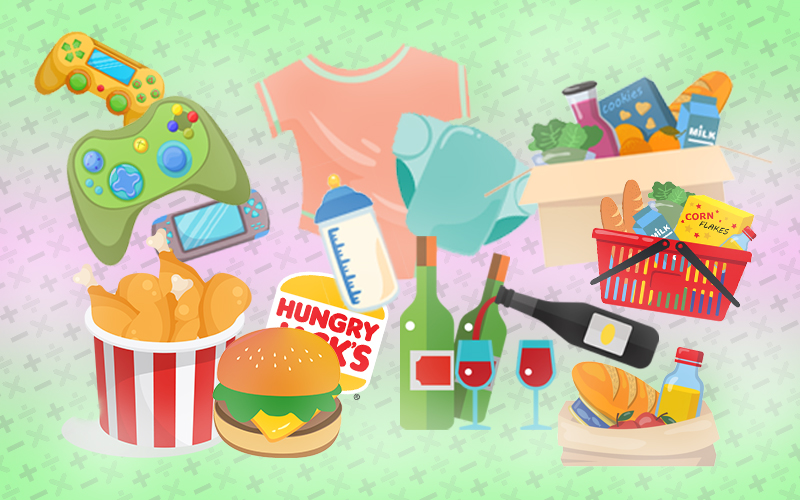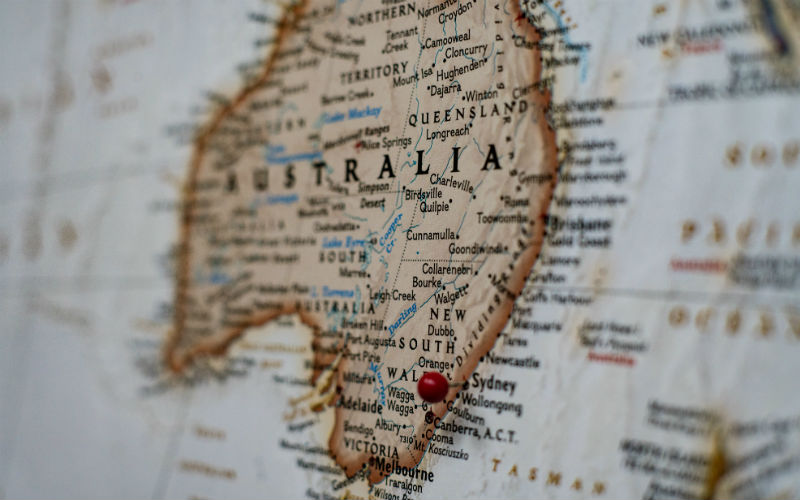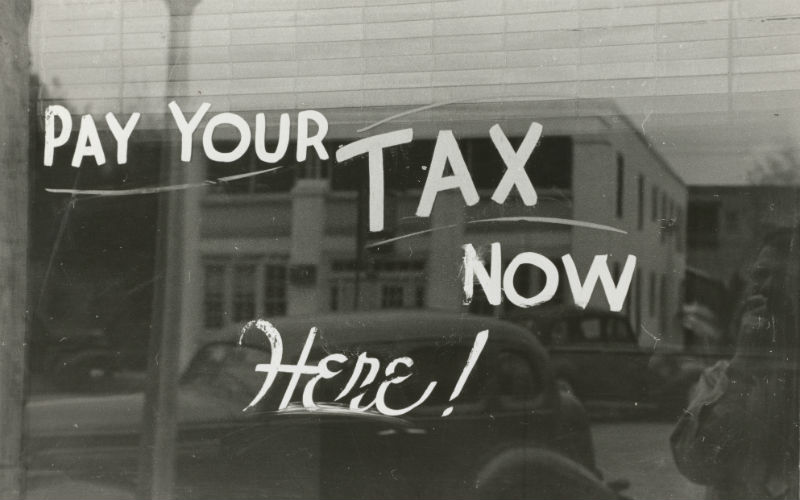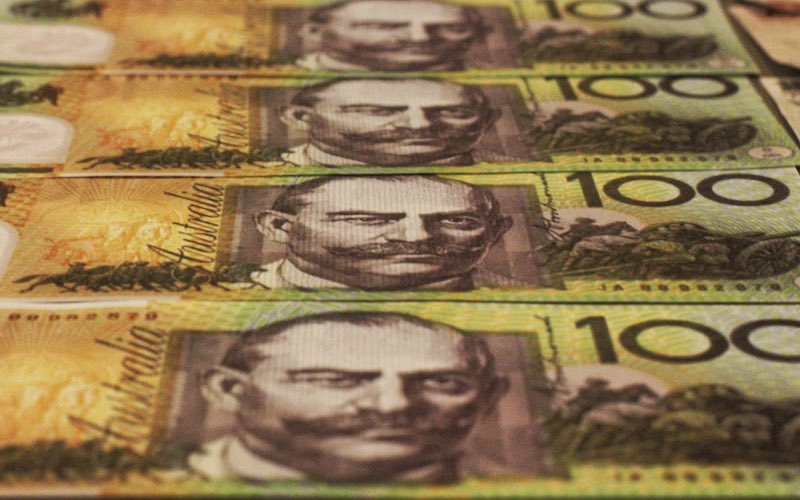There are plenty of reasons to feel good about being Australian. Whether it's education, health, or household wealth, Australia ranks consistently high on global liveability metrics. But one international leaderboard Australia uncomfortably sits at the top of is gambling losses per capita. Australians are voracious gamblers, losing more on the punt than any other country in the world, putting up some pretty astonishing numbers.
Australian Gambling Statistics
The Queensland Treasury publishes Australian Gambling Statistics for each financial year, generally regarded as the authoritative source of gambling statistics in Australia. The 39th edition is the most recent, covering 2022 to 2023.
How much do Australian people bet?
According to the 39th edition of Australian Gambling Statistics, Australians bet about $244.3 billion in 2022/2023. That's an 18.2% increase on 2021/2022, and an all time high, beating the previous record of $232.8 billion in 2018/2019. Aussie punters put $191.1 billion through the pokies in 2022/23, spent just over $20 billion at casinos, $7.8 billion on lottery tickets and put on $23.3 billion worth of wagers.
If this sounds like a lot, it is. Over the same period, the Australian Government spent just under $223 billion on social security and welfare. Health spending (which includes all Medicare payments) and defence combined totaled $144 billion. The $244.3 billion Aussie punters spent in 22/23 was more than the total GDP of all but about 50 nations, including Greece, Algeria and Hungary.
Averaged out across the roughly 20.6 million Australians aged over 18, that's $11,859 per head. This is how that breaks down by gambling category:
-
$10,727 per person on gaming, including $9,281 on the pokies.
-
$1,133 on wagering, like sports betting
Australian gambling losses
As any gambler will tell you though, not every dollar spent is lost. The same report tallied Australian national gambling expenditure (total gambling winnings subtracted from total turnover) at $31.5 billion. Per adult that's about $1,527 lost to gambling every year.
That's:
-
$1,120 per person lost on gaming, including $765 on the pokies
-
$408 per person on wagering
So the average Australian adult loses over $1,500 per year gambling. That's money that could be going towards mortgage repayments, investments, savings accounts, you name it.
Bear in mind the average is based on every single adult in Australia. In reality, a proportion of the population does not gamble at all. The most recent estimate of the Australian Institute of Family Studies (AIFS) is that about 73% of Australian adults spend money on gambling activities in a typical year. Using this figure, we can estimate that the average gambler lost about $2,100 in 2022/23, but even this figure includes people who only gamble a couple of times a year.
It's not unreasonable to infer from this data that there is a substantial number of Australians who lose tens, if not hundreds, of thousands of dollars every year on the punt.
Alliance for Gambling Reform Chief Advocate, Rev Tim Costello said the impacts of these disturbingly high losses should not be tolerated.
"Gambling harm encompasses everything from the loss of homes and relationships to the loss of lives through deaths by suicide associated with gambling harm," Rev Costello said in December 2019.
"There are direct connections in some instances between gambling harm and family violence and mental ill-health.
"When you consider for every person directly experiencing gambling harm it is estimated at least six more people connected to those people experience some impact, we are talking about an issue that affects an extraordinary number of Australians."
The social cost of gambling
In November 2017, the Victorian Problem Gambling Foundation found that there is more than just a personal cost to gambling in Australia. This research found that in 2014-15, the cost of problem gambling in Australia totalled $7 billion:
-
$2.2 billion - family and relationship problems
-
$1.6 billion - emotional and psychological issues, including distress, depression, suicide and violence
-
$1.3 billion - financial losses, like bankruptcy and illegal offshore gambling
-
$1.1 billion - costs to the Victorian government, such as research, regulation, and professional support services
-
$600 million - lost productivity and other work-related costs
-
$100 million - costs of crime
And that's just the state of Victoria - the total cost nation-wide would obviously be far more. Addiction, emotional and mental problems, lost productivity at work, crime and the breakdown of relationships are clearly all possible consequences of problem gambling. Of course, the Government claws back some of this in tax revenue, while some libertarian types would point to the economic benefits of having such a large gambling industry in Australia. The NRL and the AFL for example would probably be in much worse shape without sponsorship and rights deals from the likes of SportsBet, while gaming machines like pokies are undeniably huge for the hospitality industry.
However, many feel the gambling culture in Australia has gone too far. In a 2023 AIFS research paper titled Gambling participation and experience of harm in Australia, survey results suggested a majority of Australians had concerns about the availability of gambling and the impact it was having on the wider community.
-
77% of respondents believed there are 'too many opportunities for gambling nowadays'
-
68% felt gambling is 'dangerous for family life'
-
59% say it 'should be discouraged'
Other key statistics
Here are a few other gambling statistics from the AIFS.
-
There were 6.5 million regular gamblers in Australia in 2018 - 35% of the population
-
Participation in lotteries was most common, with 27% of Australian adults spending money on lottery tickets in 2018.
-
The next most common were pokies (7.4%) and scratch tickets (6.3%).
-
In a typical month in 2018, 39.6% of men and 31% of women gambled.
-
Gamblers generally spent around half their overall gambling outlay on a single product
-
Mean expenditure was lower among gamblers who had a university degree and lived in a house with children
-
1.33 million Australian adults experienced one or more gambling-related problems in 2018
-
Gamblers living in low-income households spent, on average, a much greater proportion of their household's total disposable income on gambling than high-income households (10% for those earning below $38,000 versus 1% for those earning above $132,000)
-
Problem gamblers in low-income households spent the greatest proportion (27%) - equivalent to four times the average annual household utility bills
-
In 2023, survey findings suggest around 73% of Australian adults gambled at least once in the past 12 months, with 38% gambling at least weekly.
Fact: In 2019, NSW revenue from pokies was roughly the same as the GDP of Fiji.
How do Australian gamblers compare to other populations?
Places like Las Vegas may be synonymous with gambling, but the United States is actually nowhere near the mighty Aussies in terms of gambling losses per person. Australia is by far the gambling capital of the world when it comes to losses per capita - and no other region even comes close. According to a 2017 study by H2 Gambling Capital, gambling losses per capita in Australia were $US958 that year. The next closest was Hong Kong at $768 per capita - the United States was ninth with $421 lost per capita.
Given the ease-of-access and normalisation of gambling in Australia, a wise punter wouldn’t put money on us losing ‘top-spot’ any time soon…
Why do we bet so much?
The pokies
“Australia has always embraced gambling … Having always been a culture where risk and reward reigns supreme.”
– onlinecasinos.com.au
Gambling is commonplace in Australian culture and it's almost impossible to not be exposed to it, especially when watching TV or sport.
Despite the rise of online betting applications though, pokies continue to reign supreme.
The biggest chunk ($15.8 billion) of Australia's gambling losses in 2018-19 were on the pokies, called slot machines in the US and fruit machines in the UK. Australia has 20% of all of them worldwide. Why? Because we're one of few countries that permits these machines outside of casinos - frequenting pubs, bars, and even sporting clubs, with the exception of Western Australia.
In 2017, the Australian Institute of Family Studies found that there were more than 200,000 active pokie machines in Australia, with over 95,000 of them in NSW. You can walk into pretty much any pub or sporting club, plonk yourself down at a machine and start pressing that magic button. In Victoria, 90% of AFL teams operate their own pokies. They're easy to access, easy to use and ubiquitous.
There are regulations on pokies in Australia - you can't place a single bet of more than $5, for example, and NSW have put a 20% cap on new pokie machines in problem gambling areas - but they appear to have little impact. In September 2023, signs that say "VIP lounge", "Dragons Den" or other similar names that allude to gambling were also banned in NSW.
These machines also have mandatory return to player ratios: at least 85% in NSW, Victoria, Queensland and the Northern Territory, 87% in the ACT and 87.5% in South Australia. That means that over the life of the game in South Australia (often several years) it must return at least 87.5% of the wagered amounts back to the players, so a maximum of 12.5% of the turnover is retained by the gambling venues. This doesn't mean that you will get a win 87.5% of the time though. It's a figure aggregated across the entire life of a single machine. If say $1 million is put through a machine over a couple of years, by law, it needs to pay out at least $875,000 in winnings.
Pokies are “really good at getting people hooked: Each (bet) provides a dopamine release, similar to a drug like cocaine, in your brain. They target people who are often under stress, offer a euphoric sensation, then take all their money off them.”
– Charles Livingstone, Senior Lecturer, School of Public Health and Preventative Medicine at Monash University
In essence, each bet on the pokies makes you feel good. And when you combine this with the sheer multitude of the things around, it’s no wonder we use them so much.

Look at all the pretty colours. Source: Unsplash.
Sports Betting
“Online sports betting, particularly with young men, is growing exponentially, it’s become normalised, it’s all over television.”
– Fiona Guthrie, Financially Counselling Australia CEO to News Corp
Online betting apps make placing a bet on a sports game ridiculously easy, and these companies are now offering ever more eclectic markets.
Punters on Sportsbet, the largest online betting company in Australia, can bet on things like the winner of Triple J's hottest 100, the next leader of the Liberal party, even which character will have the first line of dialogue in the next season of Stranger Things.
Advertising for online sports betting is an increasingly controversial issue, with many calling for stricter restrictions on advertisements during televised games or even an outright ban. Currently in Australia, in play advertisements during games are not permitted, any representative of a gambling organisation needs to be clearly identified and not a part of any commentary team, and any program principally directed at children between 5am and 8.30pm cannot have gambling advertisements.
Platforms like Youtube are exempt from these rules though, so anyone in their target demographic (such as young males or people who've placed a bet before) are incredibly likely to see an ad from a betting company. Banner ads online are everywhere, and those who link their mobile number to betting accounts (which is often required) receive text messages about upcoming games or deals unless they respond saying 'STOP'.
The way gambling advertising dominates professional sports is a growing concern for Australians. AIFS paper Community attitudes towards sports and race betting advertising in Australia had the following findings:
- 69% of Australian adults believe sports and race betting advertising is too common
- 62% say it encourages 'engaging in risky gambling'.
- 53% say it normalises gambling among children.
The survey found significant support for extended restrictions on gambling advertisements.
Anyone with a smartphone or laptop can open their betting app and place a punt on the game they’re watching, or one that’s taking place halfway around the world, which is a cause for concern for many high-profile people. Speaking to the ABC, Dr Chris Hunt, a clinical psychologist at the University of Sydney’s Gambling Treatment and Research Centre, said: “It’s been such an ingrained part of Australian culture for such a long time. I think we should be concerned about the availability of betting and the promotion of betting in sport.”
A typical day on the punt
The most recent Australian Institute of Family Studies information suggests 48% of men gamble weekly, compared to 28% of women. Survey results based on sampling of respondents organised by gambling products used estimated a mean and median expenditure for these people in a single session.
| Gambling product | Mean expenditure (Median) AUD |
||
|---|---|---|---|
| Overall | Men | Women | |
| Sports betting | $83 ($20) | $98 ($25) | $53 ($20) |
| Racing | $93 ($20) | $112 ($30) | $63 ($20) |
| All other gambling (Pokies, casino, lotteries etc.) | $109 ($30) | $119 ($30) | $92 ($30) |
| All gambling | $95 ($23.33) | $109.67 ($28.33) | $63 ($25.33) |
The difference between the mean and median results here is notable, likely due to the higher percentile heavy gamblers, who would be spending amounts far above the norm, distorting the mean.
How gambling impacts your savings
If you're anything like the average Aussie, gambling doesn't affect your savings in a good way. We've written previously about how much the average Australian saves each week. In June 2023, the average household saved just 1.6% of their disposable income, which on average at the time was about $1,124 per week. This works out at around $18 per week or $936 a year, compared to the average gambling loss per capita in 22/23 of $1,527 per person.
If you're thinking this household savings ratio is very low compared to long term averages, reflecting high interest rates and cost of living pressure, you'd be right. Perhaps a better snapshot is the total value of household deposits. Per the ABS, Australians had a total of about $157.6 billion in term deposits and savings accounts in June '23. Total gambling losses in 22/23 were about $31.5 billion, so had all the nation's punters decided to instead put that money into their savings, the collective national savings balance might be nearly 20% larger.
Resources for gambling help
Problem gambling is generally defined as:
When betting starts to create trouble in your life, such as debt; relationship problems; loss of a job; stress or depression etc.
If you continue to gamble despite negative consequences, or if you know you need to stop, but can’t, then you might be a problem gambler. If you’re reading this and think you might have a problem with gambling, there are numerous resources you can reach out to for help:
- Gambling help online: 1800 858 858
- Lifeline: 13 11 14
- Gambler’s Help: 1800 858 858 (Gambling help online’s number)
To help get your finances back in order after gambling issues, you can also speak to an ASIC approved financial counsellor.
Savings.com.au’s two cents
Everyone thinks gamblers are idiotic until they give it a go themselves. Betting - whether it's on a roulette table, a horse, or your favourite sports team - can be a lot of fun and there are undeniably plenty of people who have a completely healthy relationship with the punt. If you buy a scratchie every once in a while and get involved in your office sweepstake each year when the Melbourne Cup comes around, you probably don't have anything to worry about.
If you're putting up gambling numbers that are anywhere close to the national average though, you might want to have a good think about your habits. Try tracking every bet you place or every note you put into the pokies, just as you would with everything else you budget. While each $20 you bet might seem harmless, you might be surprised to see how quickly these numbers can add up.
If you do think you have a problem with gambling, then don't hesitate to contact the support services listed above.
Picture by Matthew Schwartz on Unsplash



 Harry O'Sullivan
Harry O'Sullivan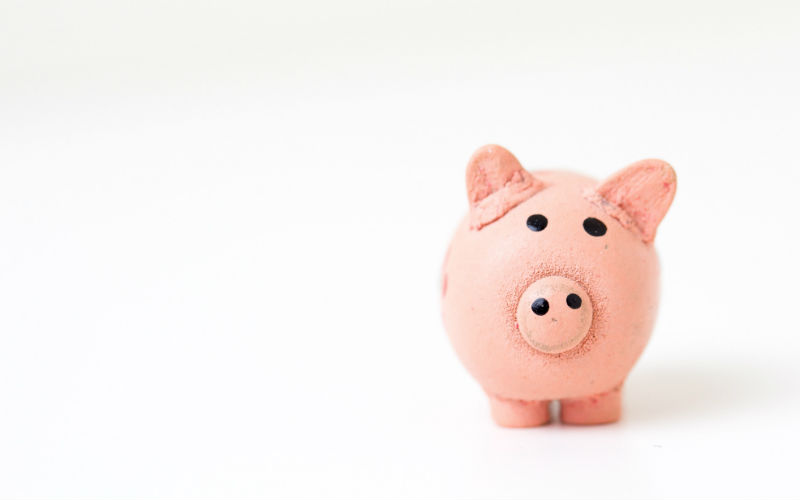
 Emma Duffy
Emma Duffy





